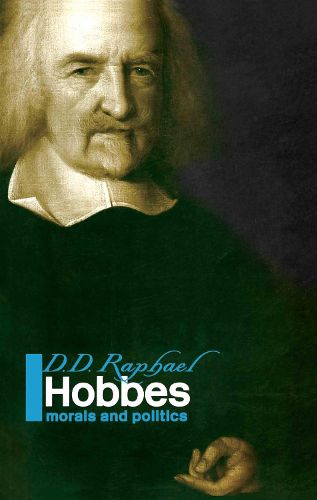Readings Newsletter
Become a Readings Member to make your shopping experience even easier.
Sign in or sign up for free!
You’re not far away from qualifying for FREE standard shipping within Australia
You’ve qualified for FREE standard shipping within Australia
The cart is loading…






Hobbes is perhaps the most enjoyable and provocative of political thinkers. His writing surprises, shocks, captivates, amuses and, above all, stimulates criticism both of himself and of our conventional wisdom. He raises fundamental questions as much of ethics as of politics; his suggested answers make him one of the greatest of political philosophers and a highly acute thinker on ethics. This important book is both descriptive and critical, concentrating on Hobbes’s ethical and political theory, but also considering the effect on these on his metaphysics. D. D. Raphael provides a distinctive analysis of Hobbes’s account of artificial obligations and rights, the relation between obligation and causation and the continuing influence of mechanics on Hobbes’s psychology and ethical theory. He also includes a detailed survey of other interpretations. Updated, with a new preface and critical bibliography, this book will be particularly useful as an introduction for undergraduates of politics and philosophy.
$9.00 standard shipping within Australia
FREE standard shipping within Australia for orders over $100.00
Express & International shipping calculated at checkout
Hobbes is perhaps the most enjoyable and provocative of political thinkers. His writing surprises, shocks, captivates, amuses and, above all, stimulates criticism both of himself and of our conventional wisdom. He raises fundamental questions as much of ethics as of politics; his suggested answers make him one of the greatest of political philosophers and a highly acute thinker on ethics. This important book is both descriptive and critical, concentrating on Hobbes’s ethical and political theory, but also considering the effect on these on his metaphysics. D. D. Raphael provides a distinctive analysis of Hobbes’s account of artificial obligations and rights, the relation between obligation and causation and the continuing influence of mechanics on Hobbes’s psychology and ethical theory. He also includes a detailed survey of other interpretations. Updated, with a new preface and critical bibliography, this book will be particularly useful as an introduction for undergraduates of politics and philosophy.